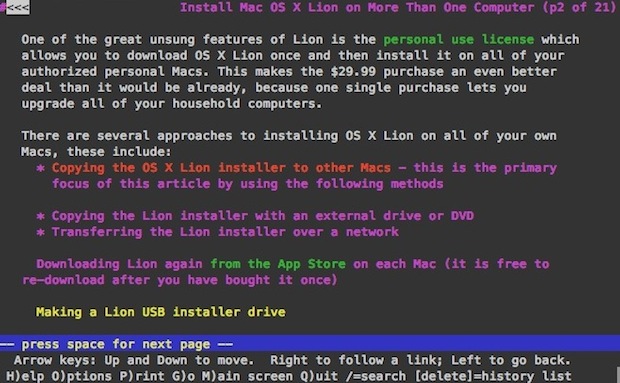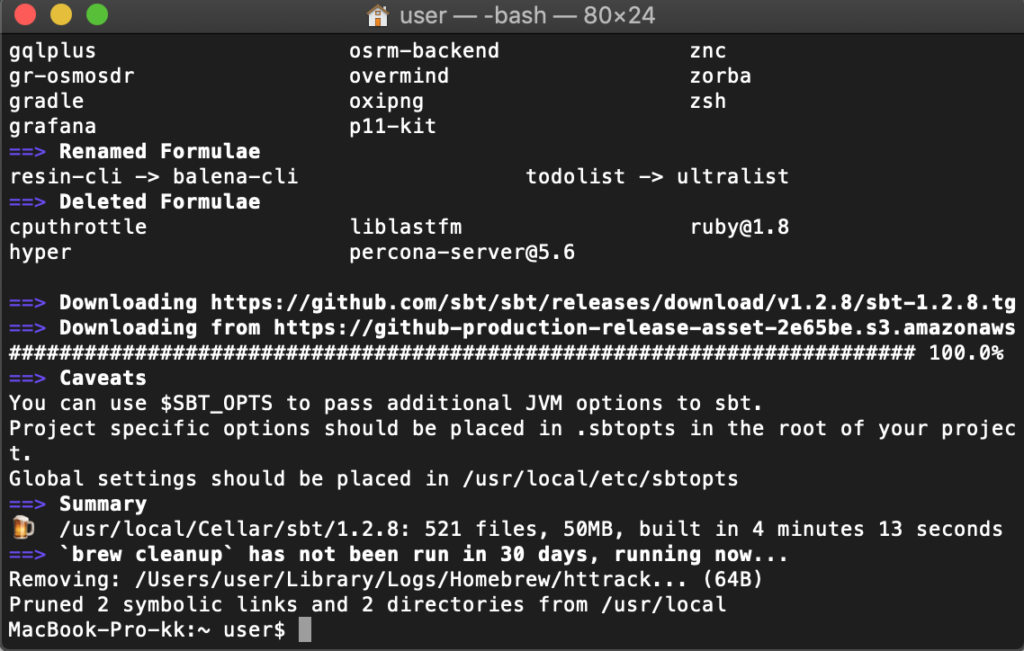

- HOMEBREW OR MACPORTS FOR FREE
- HOMEBREW OR MACPORTS INSTALL
- HOMEBREW OR MACPORTS UPGRADE
- HOMEBREW OR MACPORTS CODE
We have a vulnerability watch where we publish the latest vulnerabilities in many popular programs. If you’re the type that loves hearing about vulnerabilities and loves talking tech, as probably many Homebrew users do, you may be interested in joining the Info Toast Discord.
HOMEBREW OR MACPORTS UPGRADE
Sudo port upgrade outdated <- Upgrades all outdated packages Conclusion sudo port selfupdate <- Upgrades a specific outdated package You may want to know a few commands you can run to use it. Navigate to the MacPorts website and download the installer. However, make sure the Xcode command-line developer tools are installed first: xcode-select -install MacPorts installs more like a traditional Mac app than Homebrew. zprofile and remove the line that calls the “brew” command. To prevent you from getting spam when starting your Terminal, use nano or vim to open up. If you’re on Apple Silicon, you will still need to remove the /opt/homebrew directory from your system. Once that is done, there are a few other things you may want to do. Type in the following command to execute the Homebrew uninstallation script: /bin/bash -c "$(curl -fsSL )" Luckily, Homebrew has made it relatively easy to uninstall. How do I uninstall Homebrew for better security? MacPorts also has better support for Apple Silicon.
HOMEBREW OR MACPORTS INSTALL
MacPorts will build packages that you install from source, so everything is tailored to your system configuration. As Mac is based on BSD, not Linux, Homebrew is a Linux solution to a BSD problem, while MacPorts is a BSD solution to a BSD problem. There is an alternative to Homebrew that, in my opinion, is way better for security.
HOMEBREW OR MACPORTS FOR FREE
See also How to Make Your Own Website For Free (Except Domain Names) What should I do about Homebrew Security? In other words, Homebrew creates an administrator security bypass when it is installed. In Macs that have Homebrew installed, as the sudo binary is located in /usr/bin, a malicious program can place a script called “sudo” in /usr/local/bin or /opt/local/bin that takes your password and then uses it to allow a virus to gain administrator access. Imagine if someone wanted to make a fake sudo command that grabs your password to elevate itself to administrator. Ok, here’s where the vulnerability comes in. usr/local/bin <- Homebrew makes this writable by you on Intel Macs opt/local/bin <- Homebrew makes this writable by you on Apple Silicon This is how the directories are listed on a Mac without homebrew or anything that alters the PATH variable. The problem is, Apple put /usr/local/bin first in the PATH environment variable. It will find the first one that is first in the list of directories. When the user types in a command, the system looks through each directory until it finds one. The best way I can describe this is that the PATH environment variable includes a list of directories that contain binaries. This doesn’t seem that bad on the surface until you factor the PATH environment variable in.

Homebrew made the installation directory for packages, /usr/local/bin (Yes, I know it’s /opt/local/bin on Apple Silicon), writable to the user that installed Homebrew. However, as any experienced UNIX people know, poking holes in the system never ends well. A while back, Homebrew ditched the use of sudo in a move that many praised. I was trying to find knowledge about how the Homebrew team greenlights their packages to ensure that it’s not filled with viruses. However, I’ve never seen a binary package manager that creates more of a security problem having it than not having it.
HOMEBREW OR MACPORTS CODE
I have praised BSD’s Ports, where a source code tree allows you to install packages from source with all their dependencies. I’ve talked before about the various problems with binary package management systems.


 0 kommentar(er)
0 kommentar(er)
